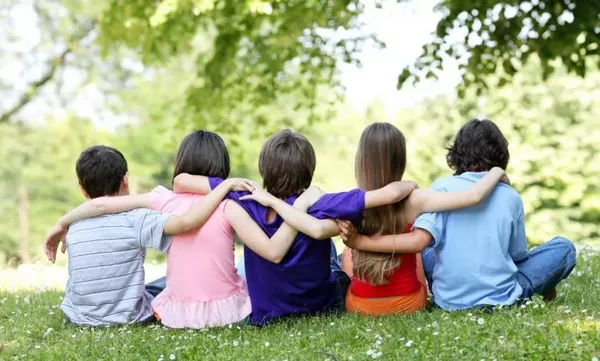The concept of a “best friend” is a deeply ingrained part of human social life. It represents an ideal of friendship that many people aspire to, characterized by deep emotional connections, unwavering support, and a profound understanding of one another. But what does it truly mean to have a best friend? What are the psychological, emotional, and social aspects that define this relationship? This article delves into the essence of best friend relationships, exploring their significance, the psychological underpinnings, and the factors that contribute to their development and maintenance.
Defining the Best Friend Relationship
A best friend relationship is often defined by its depth and exclusivity. Unlike casual friendships or acquaintanceships, a best friend relationship typically involves:
Deep Emotional Connection: Best friends share a bond that goes beyond surface-level interactions. They are privy to each other’s innermost thoughts, feelings, and experiences.
Unconditional Support: Best friends offer unwavering support and encouragement. They are present during both joyous and challenging times, providing a sense of security and comfort.
Trust and Honesty: Trust is a cornerstone of best friend relationships. There is a mutual expectation of honesty and reliability, allowing both individuals to be their authentic selves without fear of judgment.
Shared History and Experiences: Best friends often have a shared history that contributes to their bond. This history includes past experiences, inside jokes, and a mutual understanding of each other’s backgrounds.
The Psychological Basis of Best Friend Relationships
Understanding the psychological foundation of best friend relationships involves exploring several key aspects:
Attachment Theory
Attachment theory, developed by John Bowlby and Mary Ainsworth, provides insight into how individuals form emotional bonds. According to this theory, early attachment experiences with primary caregivers influence how individuals form relationships later in life. Secure attachment in childhood leads to healthy, trusting relationships in adulthood. Best friends often exhibit characteristics of secure attachment, such as:
Comfort with Intimacy: They are comfortable with emotional closeness and vulnerability.
Trust and Reliability: They demonstrate consistent and reliable behavior, which fosters a sense of security.
Self-Disclosure and Mutual Understanding
Self-disclosure, the act of sharing personal information with others, is a critical component of best friend relationships. Psychologist Sidney Jourard emphasized the importance of self-disclosure in building close relationships. Best friends engage in frequent self-disclosure, which enhances mutual understanding and strengthens their bond. Key elements include:
Emotional Sharing: Discussing personal thoughts and feelings helps create a deep emotional connection.
Reciprocity: Mutual self-disclosure ensures that both individuals are equally invested in the relationship.
Social Exchange Theory
Social exchange theory posits that relationships are based on the exchange of resources, such as support, affection, and companionship. According to this theory, people weigh the costs and benefits of relationships and seek to maximize rewards. In best friend relationships, the perceived benefits often outweigh the costs due to:
Emotional Support: The emotional rewards provided by best friends, such as empathy and understanding, contribute to the relationship’s value.
Low Cost of Maintenance: Best friendships often require less effort to maintain compared to other relationships due to the high level of mutual understanding and trust.
The Development of Best Friend Relationships
Best friend relationships typically evolve over time through several stages:
Initial Attraction and Connection
The initial stage involves meeting and forming a connection with someone. Factors such as shared interests, values, and personality traits play a role in the early stages of friendship. This phase is characterized by:
Mutual Interest: Shared hobbies or activities often bring individuals together.
Compatibility: Similar values and personality traits contribute to initial bonding.
Building Trust and Intimacy
As the relationship progresses, trust and intimacy develop. This phase involves:
Increased Self-Disclosure: Sharing personal experiences and feelings enhances emotional closeness.
Experiencing Challenges Together: Overcoming challenges and providing support during difficult times strengthen the bond.
Maintenance and Deepening of the Relationship
Once a strong foundation is established, maintaining the relationship involves:
Regular Communication: Consistent interaction helps sustain the connection.
Supporting Each Other: Providing emotional and practical support reinforces the relationship.
Challenges in Best Friend Relationships
Despite their strength, best friend relationships are not without challenges. Common issues include:
Jealousy and Competition
Jealousy can arise if one person feels that their best friend is giving attention to someone else. This can create tension and conflict within the relationship.
Miscommunication
Misunderstandings and poor communication can strain best friend relationships. It is essential to address conflicts and communicate openly to resolve issues.
Life Changes and Distance
Life events such as moving to a new city, changing jobs, or major life transitions can impact the dynamics of a best friend relationship. Maintaining the connection through these changes requires effort and adaptability.
See Also: How to Keep Attraction in a Long-Distance Relationship?
The Benefits of Best Friend Relationships
Having a best friend offers numerous psychological and emotional benefits:
Emotional Support and Resilience
Best friends provide emotional support during challenging times, contributing to increased resilience. This support can buffer against stress and promote mental well-being.
Increased Self-Esteem
A strong best friend relationship can enhance self-esteem by providing validation and affirmation. Knowing that someone values and accepts you can boost confidence.
Improved Social Skills
Navigating and maintaining a best friend relationship helps develop social skills, such as empathy, communication, and conflict resolution.
Cultivating and Maintaining a Best Friend Relationship
Building and maintaining a best friend relationship requires intentional effort. Here are some tips for fostering a strong and lasting connection:
Prioritize Quality Time
Spending quality time together is crucial for strengthening the bond. Engage in activities that both enjoy and create meaningful experiences.
Practice Active Listening
Active listening involves fully engaging with what the other person is saying without interrupting or judging. This practice fosters deeper understanding and connection.
Show Appreciation and Gratitude
Expressing appreciation and gratitude reinforces the positive aspects of the relationship. Acknowledge the importance of your best friend and show them that you value their presence in your life.
Be Supportive and Reliable
Being a reliable source of support during both good and challenging times strengthens the relationship. Demonstrate that you are dependable and committed to the friendship.
Address Conflicts Openly
Conflicts are a natural part of any relationship. Addressing issues openly and constructively helps prevent misunderstandings and maintains trust.
FAQs
Q: What qualities make someone a best friend?
A: Qualities that define a best friend include deep emotional connection, trust, unconditional support, and a shared history. Best friends are characterized by their ability to offer understanding, reliability, and mutual respect.
Q: How can I deepen my existing friendship to make it a best friend relationship?
A: To deepen a friendship, focus on increasing self-disclosure, spending quality time together, and supporting each other through challenges. Building trust and demonstrating commitment are key to developing a best friend relationship.
Q: What should I do if my best friend and I have a falling out?
A: Address the issue openly and honestly, and seek to understand each other’s perspectives. Effective communication and a willingness to resolve conflicts are essential for repairing and maintaining the relationship.
Q: Can best friend relationships be maintained over long distances?
A: Yes, best friend relationships can be maintained over long distances through regular communication, such as phone calls, video chats, and visits. Effort and commitment are necessary to keep the connection strong despite physical separation.
Q: How do best friends contribute to mental well-being?
A: Best friends contribute to mental well-being by providing emotional support, enhancing self-esteem, and reducing stress. The sense of belonging and connection from a best friend relationship can positively impact overall mental health.
Conclusion
In essence, the best friend relationship is a complex and multifaceted bond that significantly impacts our emotional and psychological well-being. It represents an ideal of friendship marked by deep emotional connections, trust, and unwavering support. Understanding the psychological underpinnings of this relationship helps us appreciate its value and navigate its challenges more effectively. By prioritizing communication, support, and appreciation, we can cultivate and maintain these meaningful connections throughout our lives.
Related topics:



















